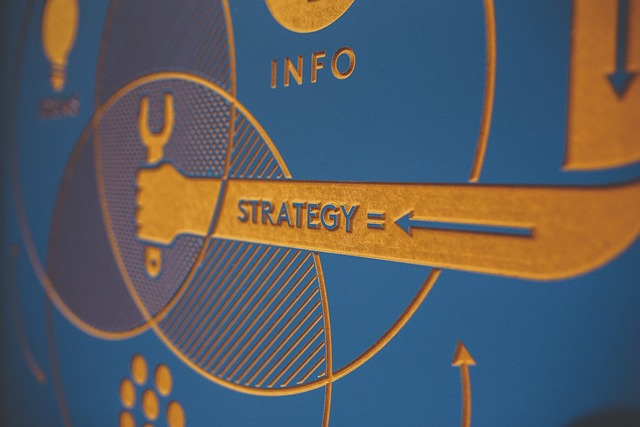Artificial Intelligence (AI) has emerged as a game-changer in the field of digital marketing. Businesses are leveraging AI-driven marketing tools to enhance efficiency, improve targeting, and deliver personalized customer experiences. From optimizing content marketing to running predictive analytics, AI is reshaping traditional strategies and providing a competitive edge in the ever-evolving marketplace. In this article, we will explore how AI can be integrated into different aspects of marketing to drive impactful results and streamline processes.
Understanding the Role of AI in Marketing
Artificial Intelligence plays a crucial role in modern marketing strategies by automating repetitive tasks, analyzing large sets of data, and predicting customer behavior patterns. With AI in digital marketing, businesses can focus more on strategy rather than spending excessive time on manual operations. AI-driven insights help marketers understand their audience better, enabling them to tailor campaigns that resonate deeply with the target audience. This leads to higher engagement, better conversion rates, and increased ROI.
AI-Powered Content Marketing
AI is transforming the way businesses approach content creation and distribution. With AI-powered content marketing tools, brands can create, curate, and distribute content more efficiently. AI tools analyze audience preferences, trending topics, and even the tone of the content that resonates well with the target audience. This allows marketers to develop highly personalized content strategies.
For example, AI tools like Natural Language Processing (NLP) can analyze large volumes of content to suggest improvements, detect gaps, and even generate automated content for blogs or social media. AI can also help with content distribution by identifying the best times to publish, optimal platforms to use, and the right audience segments to target.
Furthermore, AI in content marketing can be utilized for SEO strategies. With AI-driven SEO tools, marketers can identify the most effective keywords, understand search patterns, and ensure that content ranks higher on search engines. This automation not only saves time but also enhances the quality and relevance of the content, making it more engaging and impactful for the audience.
AI for Customer Targeting and Personalization
Customer targeting and personalization are vital elements in any marketing strategy. AI has made it possible for marketers to deliver highly targeted and personalized messages to customers based on their past interactions, preferences, and behavior patterns. AI-powered customer insights tools can analyze data points such as purchase history, browsing behavior, and social media activity to segment audiences and identify high-potential prospects.
Through machine learning algorithms, AI can predict which products or services a customer might be interested in. This allows businesses to create customized offers, recommendations, and even personalized landing pages. For instance, companies like Amazon and Netflix use AI to suggest products or shows based on previous user behavior, enhancing the overall customer experience.
Moreover, AI in personalized marketing doesn’t stop at recommendations. Chatbots, for example, are a powerful tool for personalized engagement. They can answer queries, offer tailored solutions, and provide instant support. This real-time engagement significantly boosts customer satisfaction and helps convert leads into loyal customers. In essence, AI is the driving force behind hyper-personalized marketing strategies that resonate with customers on an individual level.
Using AI for Predictive Analytics
Predictive analytics is one of the most powerful applications of AI in marketing. With AI-powered predictive models, businesses can forecast future trends, customer preferences, and even sales outcomes. This allows companies to proactively shape their marketing campaigns based on data-driven predictions rather than relying on intuition.
For example, AI can analyze historical data to identify patterns and predict which products are likely to be in demand in the coming months. This can be extremely useful for inventory management and planning promotional campaigns. Predictive analytics also helps in understanding which customers are likely to churn, allowing marketers to intervene with retention strategies before losing valuable customers.
By integrating predictive analytics into their strategies, businesses can optimize their marketing spend, improve targeting, and create campaigns that yield better results. The ability to foresee market shifts and consumer preferences gives companies a significant competitive advantage and helps in building more effective, long-term strategies.
AI for Marketing Automation
Marketing automation has been around for some time, but AI has taken it to a new level. AI in marketing automation enables businesses to streamline repetitive tasks such as email marketing, social media posting, and lead management. With AI, these tasks can be performed with greater accuracy and efficiency, freeing up marketers to focus on more strategic activities.
One of the most notable examples is AI-powered email marketing. AI can help design personalized email campaigns by analyzing customer data to determine the best time to send, the most relevant content to include, and the most effective call-to-action for each segment. This leads to higher open rates, better engagement, and more conversions.
AI is also instrumental in automating social media marketing. It can identify trending topics, generate posts, and even engage with followers in real time. This level of automation ensures that businesses remain active and responsive on social channels without overwhelming their marketing teams. By automating these aspects, AI enables marketers to maintain a consistent online presence and engage effectively with their audience.
AI in Lead Generation
Generating high-quality leads is a crucial objective for any marketing team. AI has made lead generation more efficient and accurate by leveraging machine learning algorithms to identify potential customers who are most likely to convert. AI-based lead scoring models analyze vast amounts of data from various sources, including CRM systems, social media, and website interactions, to assign a score to each lead based on their likelihood to purchase.
For example, AI tools can analyze visitor behavior on a website, such as pages viewed, time spent, and engagement level, to identify which users are actively searching for solutions. This allows sales and marketing teams to focus their efforts on leads that are more likely to convert, reducing wasted resources and improving overall efficiency.
Furthermore, AI-powered chatbots are also valuable for lead generation. They can engage with website visitors in real time, answer questions, and guide users through the sales funnel. This instant interaction not only improves user experience but also captures valuable information that can be used for lead nurturing.
AI for Customer Insights and Analytics
Understanding customer behavior and preferences is critical to any marketing strategy. AI in customer insights and analytics enables businesses to gain a deeper understanding of their audience by analyzing complex data sets. AI can reveal hidden patterns, trends, and correlations that traditional analysis might miss, providing a comprehensive view of the customer journey.
By using AI, companies can segment their audience more effectively, identify high-value customer segments, and understand the factors that influence purchasing decisions. These insights are invaluable for crafting targeted marketing messages and developing products that meet customer needs.
For example, AI can analyze social media sentiment, online reviews, and survey responses to gauge customer satisfaction and brand perception. This helps marketers to refine their strategies and address any issues proactively. With AI, businesses can transform raw data into actionable insights, ensuring that every marketing decision is backed by accurate, real-time information.
Conclusion
AI has fundamentally transformed the marketing landscape, offering businesses powerful tools to automate, personalize, and optimize their strategies. By leveraging AI in digital marketing, companies can stay ahead of the competition, deliver more relevant experiences, and maximize their ROI. Whether it’s content marketing, customer targeting, predictive analytics, or lead generation, AI-driven marketing strategies are the key to thriving in today’s data-driven world. As AI continues to evolve, its role in marketing will only become more prominent, making it essential for businesses to embrace this technology to stay competitive.






